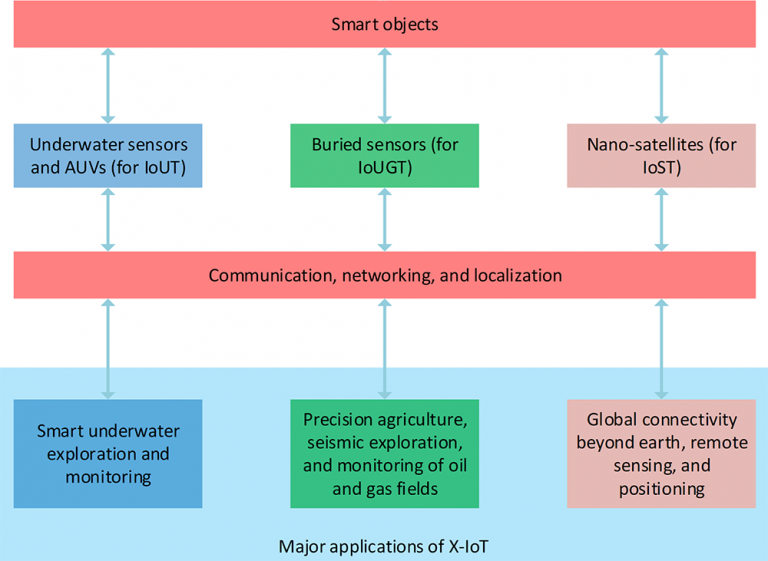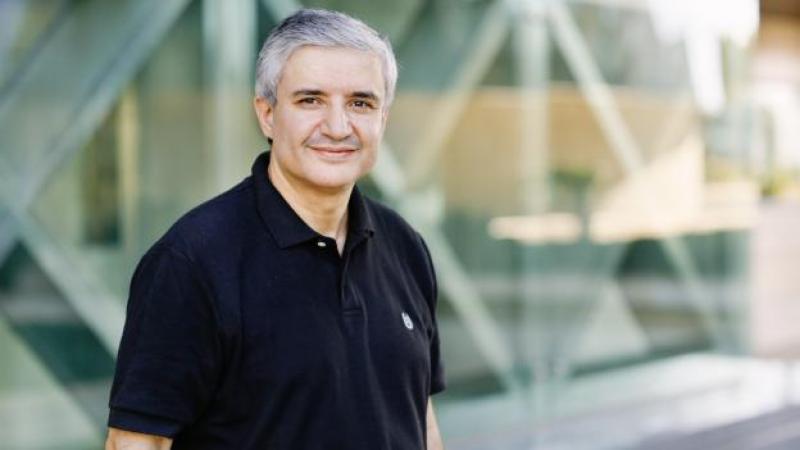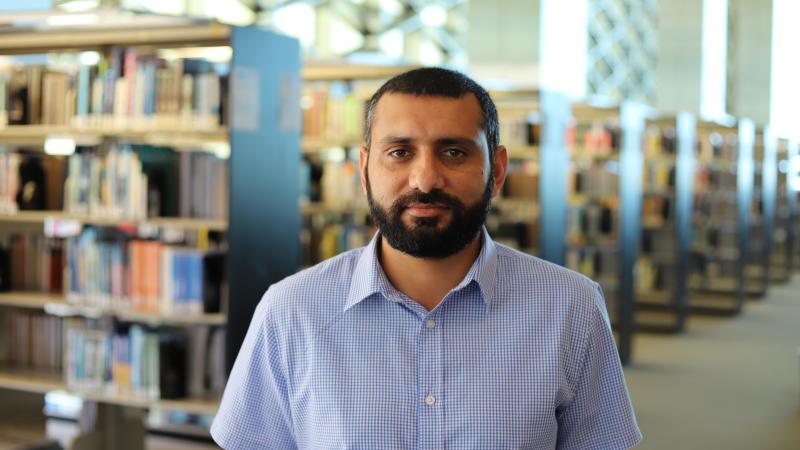The rapid growth of the world’s population demands more natural resources, food, and space. World renowned physicist Stephan Hawking has argued that soon we will require another world to live on because we are running out of space and natural resources. This ever-increasing demand for resources and space needs novel technologies to explore natural resources, produce more crops, and explore outer space. Internet of X-things (X-IoT) is an enabling technology to overcome all of the above issues. The framework of X-IoT consists of three major categories as shown in Figure 1. The first one is the Internet of underwater things (IoUT) for smart oceans. The second category is the Internet of underground things (IoUGT) for smart agriculture, seismic monitoring, and Oil/Gas fields. The third category is the Internet of space things (IoST) for outer space exploration, to provide global coverage, and to enable inter-satellite communications. X-IoT is made up of billions of smart objects from Nano-sensors to large machines communicating in underwater, underground, and outer space as illustrated in Figure 1. The breathtaking growing rate of using these smart objects will lead to the development of smart oceans, smart oil fields, smart cities, smart agriculture, and smart outer space soon. The importance of X-IoT can be seen from the investment in this technology where its total worth is expected to reach 6.2 Trillion US Dollars by 2025 [1]. Recently, the research on X-IoT has shown that it provides various underwater, underground, and space applications. For example, X-IoT can provide smart marine exploration and monitoring solutions, provide better food production and supply-chain management solutions in agriculture, and improve the production of oil and gas fields.

Figure 1: Illustration of X-IoT framework.
Read the full article here



